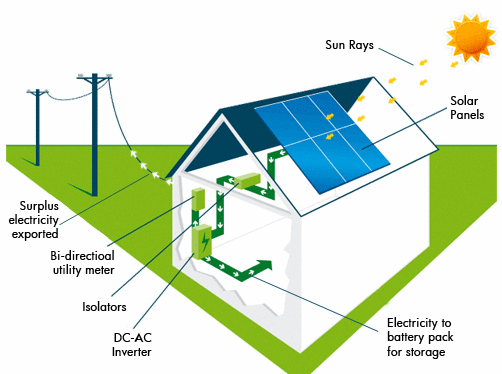
Maryland is the best place to begin if you're unsure whether solar panels are right. Maryland's Renewable Portfolio Standard program and Solar Renewable Energy Credit program promote solar energy. By 2020, Maryland aims to produce 20% of its energy from renewable sources. Maryland's renewable energy goal includes 2% solar power.
Cost of solar panels in Maryland
Maryland's solar panels can be expensive. Prices can vary depending on factors such as the size and shape of the roof. Four quotes can be received from local solar companies. The amount you save will depend on the cost of your electric bill. However, solar energy can bring you savings of over $1700 per calendar year.
Maryland homeowners can expect to pay between $12,500 and $17,000 for a 5-kW solar system. Solar panel prices can vary greatly from one installer. To get the best deal on your Maryland solar panel installation, it is a good idea for you to get several quotes. Solar panels are only a third of overall costs. Labor and overhead costs are the other major costs of a solar panel system.

Tax credits
Maryland residents are eligible for tax credits to buy solar panels. Maryland residents can get a $2,500 tax credit to help them install solar energy systems. These credits are available for the tax year that solar was first installed. Maryland homeowners have the option to carry these credits for two additional years. Maryland also has a program called statewide net meters that allows homeowners and businesses to sell excess solar energy back onto the grid. These credits are available to help reduce future utility bills.
The Residential Clean Energy Rebate Program offers tax credits for Maryland solar panels. In order to qualify, homeowners must have a residential solar energy system installed. They must also use a NABCEP certified installer to install the system. Maryland residents can also receive a $500 rebate if they install solar water heating systems.
Net metering
If you reside in Maryland and have installed solar panels, you may be eligible for net metering credits through your electricity provider. Maryland's net meters policy allows you to receive credit for all energy that you export. You can carry excess credits from month to month at the retail price. They are then reconciled each April at the utilities supply rate. The size of the solar system you have will impact how many electricity credits are available to you.
In addition to net metering, the state has many other incentives and programs to promote solar energy. Maryland residents can receive tax credits and rebates on their solar energy. A renewable energy portfolio standard has been established by Maryland. You can take advantage of these incentives to save money on your electric bill.

Alternatives to energy storage
Maryland residents may want energy storage for their solar panels. This type of battery backup system can offer you resiliency against power outages in times of extreme weather. It protects your investment by protecting you home in case of natural disasters. Maryland is the nation's first state that has passed legislation to promote distributed energy storage. Among other things, Maryland's newly-enacted climate solutions law increases the target for economy-wide emissions reductions from 40% to 61% by 2022.
You can install smaller batteries storage systems for residential or commercial use in addition to utility-scale storage. For example, a residential battery system could store 500 kilowatt-hours worth of energy. This is an impressive amount of back up power. A battery system can potentially supply power for three days, given that the average Maryland home draws 975 kilowatts of energy each month.